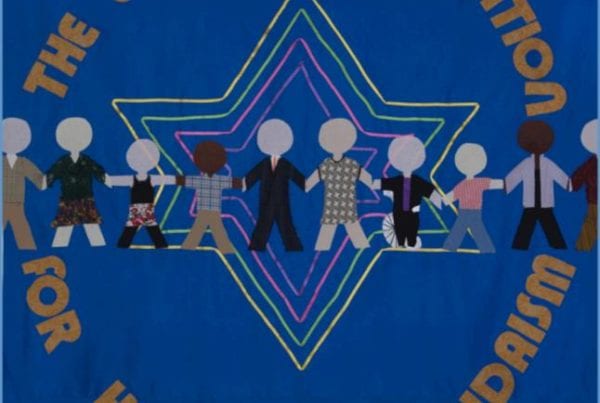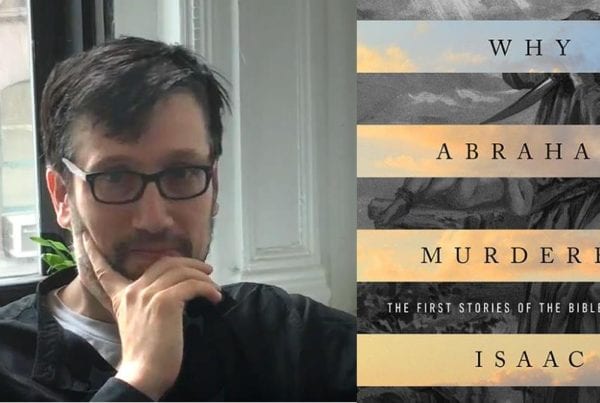Rosh Hashanah 2013
Rabbi Peter Schweitzer
As I have done regularly to open our High Holidays services, I’d like to share a brief message that is intended to set a mood and a context for our celebration and observance. A year ago last summer, I went on the first of several family history expeditions with my son, Oren, who is now 12 and preparing for his bar mitzvah next year. One of the assignments for our program is researching family history and family values, so I thought it was timely for us to take these trips, which have brought us to Germany, Poland, and, closer at home, to Virginia. These expeditions have become complicated encounters with history on a large scale and also a very personal scale.
When we went to Frankenthal, Germany, where my grandfather was born, we met two local men who are part of the Jewish Heritage Club. It turns out neither of them were Jewish, nor, for that matter, were any of the other members of the organization. But each had a reason to be involved.
Werner’s parents had been members of the Socialist Workers Youth organization until it was outlawed by the Nazis. He told me stories about how they continued to meet surreptitiously during the war. Werner honored their legacy with his own affiliation with the post-war Social Democratic Party and was a member of the local city parliament for fifteen years. His friend, Herbert, had a different story. He grew up with silence in his house and an intuition that information was being withheld from him. Only from research did he discover that his father had been a Nazi block captain during the war. Herbert felt the heavy burden of this history. He felt shame and a personal obligation to rectify the past, and so he became active in the local Jewish Heritage Club.
Of course, Herbert is not alone in feeling this particular legacy of the past. You may have seen or heard about a movie called "Hitler’s Children" that was made two years ago by an Israeli documentary filmmaker, Chanoch Ze’evi. He talked with five people who are descendants of particularly infamous Nazis. He wanted to explore how those offspring and other relatives view their ancestral guilt and what they have done about it.
Some have written books and given lectures. One man traveled to Auschwitz and had an emotional reconciliation with a group of Israeli students. One woman, the great-niece of Herman Goering, Hitler’s designated successor, talked about self-exile to New Mexico and how, she and her brother took the extreme step of having themselves sterilized in order to cut off the family line. Now when we turn to our own tradition for guidance on these matters it turns out that the Bible is of a mixed mind on this question.
On the one hand, there is a passage in the book of Exodus (20:5) that reads, “You shall not bow down to idols or worship them; for I, the LORD your God, am a jealous God, punishing the children for the sin of the fathers to the third and fourth generation of those who hate me.” The message here is that wickedness can take root and be passed down to succeeding generations. Children raised in such an environment are likely to keep the pattern of disobedience going. In the currency of our own day, abusive and alcoholic parents are likely to raise children who carry on these behaviors, unless the cycle of drinking and violence is cut off. But the prophet Ezekiel (18:20) offers a totally different perspective. He says, “The soul who sins is the one who will die. The son will not share the guilt of the father, nor will the father share the guilt of the son.” In other words, children are not to be punished for the sins committed by their parents. Nor are parents to be punished for the sins of their children. Each of us is responsible for our own wrongdoings.
Now I mentioned earlier that among our family history journeys was a trip to Virginia. That’s because we have ancestors who arrived there from Germany in the 1850s and 60s. From what I have been able to piece together, it seems that my great-great- grandfather, Isaac Guggenheimer, and his brother, Henry, were successful local merchants in the small town of Fincastle before eventually moving to Philadelphia. My subsequent research yielded two further discoveries.
First, I found several documents that dated to the period of the Civil War and recorded transactions between the two brothers and the Confederate States of America. They accounted for the sale of at least a few horses and a pile of nails. I wasn’t exactly thrilled by this finding but I figured they at least made some money out of this unhealthy alliance.
But more disturbing and upsetting was the discovery that the two brothers appear as slave owners on the 1860 schedule of Slave Inhabitants for Fincastle. Assigned to them are eight slaves – none of whose own names are recorded – but are identified as male, age 60; female, age 41; male, age 32; females ages 15, 14, 10, and 9, and one more male, age 4.
This is daunting information to absorb, and while I noted that others on the list owned dozens of slaves, this comparison didn’t really assuage my feelings or mitigate the facts. When Oren learned this news he was sorrowful if not horrified. He said, “I hope they treated them nicely.” We can tell ourselves that our family could not possibly have been inhumane taskmasters but who really knows. It saddens me to even contemplate these possibilities. When we were in Germany, I told Herbert that I did not feel that he should be held responsible for the deeds of his Nazi-party father. I tell myself that we, too, are not are not responsible for these condemnable deeds in our own family story. But we are accountable for the decisions we make, the causes we champion, whether we are silent or whether we speak out. The past cannot be undone or rewritten. But the future that unfolds before us will be written by our own deeds. How our lives will be remembered, and the history we leave for our children and their children, depends on how we live our lives.
Just days ago many of us spent more than a few hours before our television sets as we commemorated the fifteenth anniversary of Martin Luther King Jr’s “I Have A Dream Speech” and the March on Washington for Jobs and Freedom. Speaker after speaker celebrated the progress that has been accomplished, but they also decried the set-backs and the stripping away of hard won rights. I cannot compete with their rhetorical flourishes, but I can certainly sum up their message. They said: It is up to us to keep on speaking out. They said: It is up to us keep on working for equality and justice for all. They said: It is up to us to keep on marching.
In our congregation we often quote Rabbi Tarfon who said it is not yours to finish the task but nor is it yours to desist from it. Let’s make this New Year be one where we find the time and the way and the commitment and to do a little more of our share.
Shana Tova. Happy New Year.


